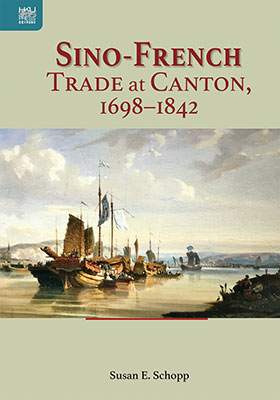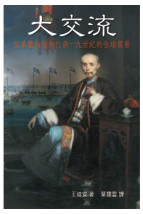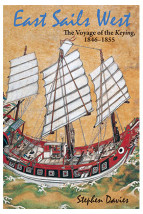Sino-French Trade at Canton, 1698–1842
(1698–1842年的廣州中法貿易)
ISBN : 978-988-8528-50-9
November 2020
212 pages, 7″ x 10″
- HK$570.00
Ebooks
Also Available on
Sino-French Trade at Canton, 1698–1842 presents a rare and lively view of the French experience at Canton, and calls for a reappraisal of France’s role in that trade. France was one of the two most important Western powers in the eighteenth century, and was home to one of the three major European East India companies. Yet the nation is woefully underrepresented in Canton trade scholarship. Susan E. Schopp rescues the French from the sidelines, showing that they exerted a presence that, though closely watched by their rivals, is today largely unrecognized. Their contributions were diverse, ranging from finding new sea routes to inspiring the renovation of hong façades. Consequently, to ignore the French, or to dismiss them as simply “also-rans,” results in a skewed perception of the Canton system.
Schopp also demonstrates that while the most distinctive aspect of the French model of company trade was the dominant role of the state—indeed, the French East India Company has been memorably described as a “Versailles of trade”—this did not rule out a place for legitimate, and sometimes surprising, participation by the private sector. On the contrary: France’s commercial relations with China were inaugurated by private traders, and the popularity of the Canton trade spurred the eventual demise of the company model. Backed up by extensive archival work, Schopp’s work demonstrates a remarkable understanding of the Sino-European trade, and her book reveals an unparalleled passion for the role of seamanship in history.
“It is shocking how little has been written in any language about French trade in China, so this excellent book fills a tremendous need. It has the potential to become a classic monograph of lasting significance: an outstanding work that will make a strong imprint on the historiography.” —Tonio Andrade, Emory University
“Schopp’s valuable study shows that the French ought not to be considered ‘also-rans’ in European trade with China. The French way was, in fact, a ‘distinctive model’ of European trade with China, one different from that of the better-known English East India Company. The author’s comprehensive research takes the reader into the material history of the French trading vessels, the hong, and the personnel involved in the trade.” —Robert Aldrich, University of Sydney






